Stocks & Shares ISA accounts are tax-efficient investment accounts. When you invest within a Stocks & Shares ISA, all the capital gains and income generated from your investments are completely tax-free. We have tested, ranked, compared and reviewed some of the best stocks and shares ISA accounts in the UK that are regulated by the FCA.
AJ Bell: Cheapest self-select investment ISA
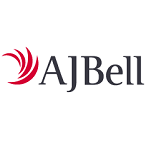
- Investments: Shares, ETFs, bonds & funds
- Minimum deposit: £500
- ISA account charge: 0.25%
- ISA dealing fee: Shares £3.50 – £5, funds £1.50
- GMG rating: (4.2)
- Customer rating: 4.2/5 (844 reviews)
AJ Bell Stocks & Shares ISA Review
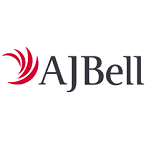
Name: AJ Bell Stocks & Shares ISA
Description: AJ Bell is an award-winning, low-cost online investing platform for the UK DIY investor. You can invest stocks in more than 20 markets, over 2,000 funds, ETFs, and bonds.
Capital at risk.
Summary
- Investments: Shares, ETFs, bonds & funds
- Minimum deposit: £500
- ISA account charge: 0.25%
- ISA dealing fee: Shares £3.50 – £5, funds £1.50
Fees: AJ Bell charges 0.25% of the value of your portfolio for their ISA. But, share account fees are capped at £3.50 a month. Dealing costs are £1.50 for funds and £5 for shares but drop to £3.50 where there were 10 or more online share deals in the previous month.
Special Offers:
- Recommend a friend, and you’ll both get £100 gift vouchers – When you recommend a friend to AJ Bell that invests more than £10,000 in a SIPP or ISA, you and your friend can get One4All gift vouchers worth £100.
- Switch your share dealing account and receive up to £500 to cover exit fees – If you transfer your share dealing general investment account valued at more than £20,000 to AJ Bell they will help cover any exit fees charged by your current provider. They will cover £35 per investment moved and up to £100 for general exit fees, up to an overall maximum of £500 per person.
- Free subscription to Shares Magazine worth £220
Get a free subscription to Shares (worth over £220 per year) by maintaining a balance of £4,000 or more across your AJ Bell investing accounts.
Pros
- Pick your own shares, funds and bonds or use their investing ideas
- Low ISA account fees capped at £2.50 a month for shares
- Lots of account types
Cons
- High phone dealing charges
-
Pricing
(4.5)
-
Market Access
(4)
-
Online Platform
(4)
-
Customer Service
(4.5)
-
Research & Analysis
(4)
Overall
4.2Hargreaves Lansdown: Best DIY stocks and shares ISA
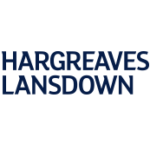
- Investments: Shares, ETFs, bonds & funds
- Minimum deposit: £1
- ISA account charge: 0.45%
- ISA dealing fee: Shares £5.95 – £11.95, funds £0
- GMG review: (4.5)
- Customer rating: 3.7/5 (1,304 reviews)
Capital at risk
Hargreaves Lansdown Stocks & Shares ISA Review
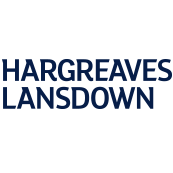
Name: Hargreaves Lansdown Stocks & Shares ISA
Description: Hargreaves Lansdown’s Stocks & Shares ISA offers access to a vast range of investments. Investors have access to domestic and international equities, over 3,000 funds, bonds, and more. Another advantage is that the platform offers plenty of research and investment tools to help you make investment decisions.
Capital at risk.
Summary
- Investments: Shares, ETFs, bonds & funds
- Minimum deposit: £1
- ISA account charge: 0.45%
- ISA dealing fee: Shares £5.95 – £11.95, funds £0
Fees: Hargreaves Lansdown’s ISA costs 0.45% of the value of your portfolio. However, share account fees are capped at £45 per year. Funds are charged at 0.45% for the first £250,000. There is no charge for buying funds, but shares are charged at £11.95 per deal or £5.95 if you do over 20 deals per month.
Pros
- Thousands of UK and international shares, bonds & funds
- Ready-made portfolios with different levels of risk
- Excellent research and analysis
- An established and listed company on the LSE.
Cons
- Can be expensive for large fund portfolios
-
Pricing
(4)
-
Market Access
(4.5)
-
Online Platform
(4.5)
-
Customer Service
(5)
-
Research & Analysis
(4.5)
Overall
4.5Interactive Investor: Excellent fixed-fee stocks and shares ISA account
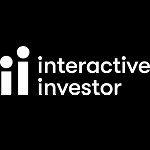
- Investments: Shares, ETFs, bonds & funds
- Minimum deposit: £1
- ISA account charge: £9.99 per month
- ISA dealing fee: £3.99 – £5.99
- GMG rating: (4.5)
- Customer rating: 4.2/5 (792 reviews)
Capital at risk
Interactive Investor Stocks & Shares ISA Review

Name: Interactive Investor Stocks & Shares ISA
Description: Interactive Investor won the 2022 Good Money Guide award for best stocks and shares ISA account as they offer one of the cheapest investment ISAs that provides access to over 40,000 shares and 3,000 funds, as well as investment trusts, ETFs and bonds. They are a good choice for people that want to take control of what they invest in.
Capital at risk
Summary
- Investments: Shares, ETFs, bonds & funds
- Minimum deposit: £1
- ISA account charge: £9.99 per month
- ISA dealing fee: £3.99 – £5.99
Fees: The Interactive Investor’s ISA account is a flat £9.99 per month, this also includes a free Junior ISA to help you save for your children. Dealing commissions are a free trade every month, then UK Shares and Funds, US Shares charged £7.99 or upgrade to a £19.99 “Super Investor” account 2 free monthly trades and deal for £3.99. Regular investing is free.
Special Offer:
- One free trade per month – One buy or sell order is free every month, after that, the cost is between £3.99 and £5.99 depending on what plan you are on.
- Free investing for your friends and family – You can give up to five people a free investment account subscription with Interactive Investor’s Friends and Family plan. You pay a single extra fee of £5 a month, and their monthly cost is zero. Each member can invest up to £30,000 in an ISA or a general investing account with free regular investing and no account fees. However, they will still pay normal dealing commissions when they buy and sell investments.
- Get £200 when you refer a friend to Interactive Investor – Recommend a friend or family member to ii and get a £200 reward. Your friend will get their first year’s service plan for free – saving £120. To qualify, your friend must transfer or fund their account with at least £10,000 in combined cash/investments. However, your friend will not receive the usually monthly free trade.
Pros
- Pick your own investments or use their model portfolios
- £1 minimum deposit makes it easy to get started
- Fixed account fee that does not increase with your investments
- Joint account options
Cons
- Fixed fee expensive for very small accounts below £1,000
-
Pricing
(5)
-
Market Access
(4.5)
-
Online Platform
(4)
-
Customer Service
(4.5)
-
Research & Analysis
(4.5)
Overall
4.5IG: Best ISA for US stocks & Smart Portfolios

- Investments: Shares, ETFs, investment trusts & pre-made portfolios
- Minimum deposit: £250
- ISA account charge: £24 per quarter
- ISA dealing fee: Shares £3 – £8
- GMG rating: (4.2)
- Customer rating: 3.9/5 (523 reviews)
Capital at risk
IG Stocks & Shares ISA Review

Name: IG Stocks & Shares ISA
Description: IG offer a very cheap way to include US stocks directly in your investment ISA. But, if you prefer not to trade in individual equities you can take advantage of and invest in a range of Smart Portfolios that are selected and managed by BlackRock on IGs behalf.
Capital at risk.
Summary
- Investments: Shares, ETFs, investment trusts & pre-made portfolios
- Minimum deposit: £250
- ISA account charge: £24 per quarter
- ISA dealing fee: Shares £3 – £8
Fees: IG charge £24 per quarter in custody fees for an ISA account. There is zero commission on US share trades and just £3 on UK share trades when you trade three or more times a month. Standard dealing fees are £8 for UK and £10 for US shares. Smart Portfolio fees are 0.5% – capped at £250 per year. Fund management charges are 0.13% and transaction costs are 0.09%.
Special Offer:
- Free US stock investing – There is zero commission on US share trades and just £3 on UK share trades when you trade three or more times a month.
Pros
- Low-cost ISA investing account
- UK & international shares
- Pre-made ISA portfolios
Cons
- Also provides access to high risk investment products
-
Pricing
(4)
-
Market Access
(4)
-
Online Platform
(4.5)
-
Customer Service
(4)
-
Research & Analysis
(4.5)
Overall
4.2Saxo Markets: Best ISA for experienced and professional investors
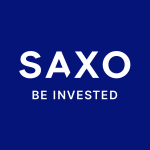
- Investments: Shares, ETFs, funds, bonds
- Minimum deposit: £1
- ISA account charge: €10 per month or 0.12%
- ISA dealing fee: Shares 0.1% – 0.05%
- GMG rating: (4.5)
- Customer rating: 3.6/5 (52 reviews)
Capital at risk
Saxo Markets Stocks & Shares ISA Review
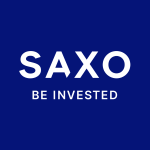
Name: Saxo Markets Stocks & Shares ISA
Description: Saxo Markets’ platform lets you invest in more than 11,000 ISA-eligible stocks, ETFs, bonds and commodities, from 60 leading exchanges worldwide.
Capital at risk.
Summary
- Investments: Shares, ETFs, funds, bonds
- Minimum deposit: £1
- ISA account charge: €10 per month or 0.12%
- ISA dealing fee: Shares 0.1% – 0.05%
Fees: Saxo Markets charge a custody fee of 0.12% for an ISA. when you buy and sell shares Saxo Markets charges a commission based on a percentage of transaction size. They are very competitive though and UK shares trading commission starts at 0.1% (£100 if you buy £100,000 worth of stock) and drops to 0.05% for more active traders.
Special Offers:
- Platinum – if you have £200,000 or more on account, you can apply for 30% lower transaction and account costs.
- VIP – For accounts with portfolios over £1m, you get even better pricing, direct connection to experts, 1:1 SaxoStrats access and propriety event invitations.
Pros
- ISA investing with direct market access
- Excellent ISA investment platform
- Low ISA dealing commissions
Cons
- May be too complicated for beginners
- Subscription fees for live pricing
-
Pricing
(4.5)
-
Market Access
(4.5)
-
Online Platform
(4.5)
-
Customer Service
(4.5)
-
Research & Analysis
(4.5)
Overall
4.5Bestinvest: Best ISA for investment advice and low costs
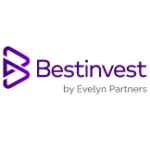
- Investments: Shares, ETFs, funds
- Minimum deposit: £1
- ISA account charge: 0.2% to 0.4%
- ISA dealing fee: Shares £4.95, funds £0
- GMG rating: (4.1)
- Customer rating: 4.2/5 (72 reviews)
Capital at risk
Bestinvest Stocks & Shares ISA Review
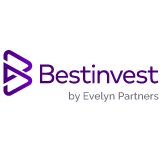
Name: Bestinvest Stocks & Shares ISA
Description: Bestinvest has combined low-cost online ISA investing and share dealing with personalised expert advice to help clients choose the right investments for their portfolio. A good choice for large long-term investors.
Capital at risk.
Summary
- Investments: Shares, ETFs, funds
- Minimum deposit: £1
- ISA account charge: 0.2% to 0.4%
- ISA dealing fee: Shares £4.95, funds £0
Fees: Bestinvest’s ISA costs 0.2% if you invest in a ready-made portfolio, which reduces to 0.1% above £500,000. For other investments like shares and bonds the account fee is 0.4% up to £250k. Dealing commissions £4.95 per online share trade, fund dealing is free.
Special Offer: Free investment guidance for potential customers.
Pros
- Expert advice from professionals
- Low minimum deposit of £1
- Very low ISA account fees from 0.2%
Cons
- No bond investing
-
Pricing
(4.5)
-
Market Access
(3.5)
-
Online Platform
(3.5)
-
Customer Service
(4.5)
-
Research & Analysis
(4.5)
Overall
4.1Wealthify: Best managed stocks & shares ISA 2023

- Investments: Pre-made portfolios
- Minimum deposit: £1
- ISA account charge: 0.6% annual charge
- ISA dealing fee: £0
- GMG rating: (4.1)
- Customer rating: 4.6/5 (2,426 reviews)
Capital at risk
Wealthify Stocks & Shares ISA Review

Name: Wealthify Stocks & Shares ISA
Description: Wealthify, part of the Aviva Group, lets you invest in an ISA in either an original portfolio of investments from the UK and overseas or choose an ethical investment plan made from a blend of environmentally and socially responsible investments.
Capital at risk
Summary
- Investments: Pre-made portfolios
- Minimum deposit: £1
- ISA account charge: 0.6% annual charge
- ISA dealing fee: £0
Fees: Wealthify charge an account fee of 0.6% for their ISA. There are also investment costs of on average 0.16% for original plans and 0.7% for ethical plans.
Special Offer: Refer a friend to Wealthify and get a £50 boost in your portfolio if they invest more than £250 and leave it there for six months. Terms apply.
Pros
- Managed ISA portfolios
- Low minimum deposit of £1
- Low ISA account fee of 0.6%
Cons
- Cannot trade individual shares or ETFs
-
Pricing
(4.5)
-
Market Access
(3.5)
-
Online Platform
(4)
-
Customer Service
(4.5)
-
Research & Analysis
(4)
Overall
4.1Nutmeg: Best for beginners who want a simple investment ISA
Approved by Nutmeg on the 11 September 2023

- Investments: Pre-made portfolios
- Minimum deposit: £500
- Management fee: 0.75%-0.45%
- Dealing fee: £0
- GMG rating: (4.1)
- Customer rating: 4.4/5 (531 reviews)
Capital at risk. Tax treatment depends on your individual circumstances and may change in the future
Nutmeg Stocks & Shares ISA Review

Name: Nutmeg Stocks & Shares ISA
Description: Nutmeg offers off-the-shelf portfolios across its ISA range to suit five different investment styles. Investors can choose between four different portfolios, including fully managed, Smart Alpha powered by J.P.Morgan Asset Management, socially responsible and fixed allocation.
Capital at risk. Tax treatment depends on your individual circumstances and may change in the future.
Summary
- Investments: Pre-made portfolios
- Minimum deposit: £500
- Management fee: 0.75%-0.45%
- Dealing fee: £0
Fees:
Nutmeg charge 0.75% for their managed ISA portfolios which drops to 0.35% for balances over £100k. For their fixed allocation ISA portfolios they charge 0.45% dropping to 0.25% for balances over £100k. For all portfolios there is an addition charged by the investment fund managers of around 0.2% and the market spread on buying and selling portfolios is currently between 0.04% and 0.09%.
More information on products and charges can be found here.
Pros
- Simple ISA investment platform for beginners
- Regular ISA investing available (one off payments or Direct Debits)
- Scaled account fees that reduce as your ISA grows
Cons
- Cannot invest in individual shares
-
Pricing
(4)
-
Market Access
(4)
-
Online Platform
(4)
-
Customer Service
(4.5)
-
Research & Analysis
(4)
Overall
4.1Moneyfarm: Best for simple risk-based investment ISAs

- Investments: Pre-made portfolios
- Minimum deposit: £500
- ISA account charge: 0.75%
- ISA dealing fee: £0
- GMG rating: (3.8)
- Customer rating: 3.5/5 (62 reviews)
Capital at risk
Moneyfarm Stocks & Shares ISA Review

Name: Moneyfarm Stocks & Shares ISA
Description: Moneyfarm’s ISA invests in ETFs to keep the costs low, so you aren’t paying for active managers. Instead, you are benefiting from tracking a series of diversified indices that are regularly rebalanced. This should mean you get to keep most of your returns rather than paying hefty fees to fund managers.
Capital at risk.
Summary
- Investments: Pre-made portfolios
- Minimum deposit: £500
- ISA account charge: 0.75%
- ISA dealing fee: £0
Fees: Moneyfarm’s ISA investing account fees are scaled between 0.75% for accounts between £500 and £50,000, then above £100k are 0.45% to 0.35%. Average investment fund fees are 0.2% and the average market spread when buying and selling is 0.10%
Pros
- Risk-based ISA portfolios
- Low-cost ISA investing
- Easy-to-use investment ISA
Cons
- Cannot buy and sell individual shares
-
Pricing
(4)
-
Market Access
(3.5)
-
Online Platform
(4)
-
Customer Service
(4)
-
Research & Analysis
(3.5)
Overall
3.8Dodl: Easy to use stocks and shares ISA for beginners
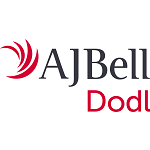
- Investments: Shares, ETFs, funds
- Minimum deposit: £100 or £25 per month
- Account types: GIA, ISA, Pension, LISA
- Account charge: 0.15%
- Dealing fee: £0
- GMG rating: (3.9)
- Customer rating: 4.0/5 (12 reviews)
Capital at risk
AJ Bell Dodl Stocks & Shares ISA Review

Summary
- Investments: Shares, ETFs, funds
- Minimum deposit: £100 or £25 per month
- Account types: GIA, ISA, Pension, LISA
- Account charge: 0.15%
- Dealing fee: £0
Pros
- Low fees
- Easy to use
- Simple investment choices
Cons
- Limited market range
-
Pricing
(4.5)
-
Market Access
(3)
-
Online Platform
(4)
-
Customer Service
(4.5)
-
Research & Analysis
(3.5)
Overall
3.9❓Methodology: We have chosen what we think are the best stocks and share ISA accounts based on:
- over 17,000 votes in our annual awards
- our own experiences testing the ISA accounts with real money
- an in-depth comparison of the features that make them stand out compared to alternative stocks and shares ISAs.
- interviews with the ISA account provider CEOs and senior management
Compare Stocks & Shares ISAs
Use our ISA account comparison to choose the best ISA account by comparing account fees, if they are DIY or managed by experts and what the minimum deposit to get started is.
| Investment ISA | DIY or Managed | Minimum Deposit | ISA Account Fees | GMG Rating | More Info |
|---|---|---|---|---|---|
 | DIY | £1 | £4.99 a month | Visit Broker Capital at risk |
|
 | DIY | £1 | 0.45% per year | Visit Broker Capital at risk |
|
 | DIY | £500 | 0.25% per year | Visit Broker Capital at risk |
|
 | Managed | £500 | 0.75% | Visit Broker Capital at risk |
|
 | Managed | £500 | 0.75% | Visit Broker Capital at risk |
|
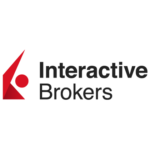 | DIY | £1 | £0 | Visit Broker Capital at risk |
|
 | DIY | £1 | £0 | Visit Broker Capital at risk |
|
 | Managed | £1 | 0.6% | Visit Broker Capital at risk |
|
 | DIY | £1 | 0.2% | Visit Broker Capital at risk |
|
 | DIY | £1 | 0.12% per year | Visit Broker Capital at risk |
|
 | Managed | £100 | 0.15% | Visit Broker Capital at risk |
Self-Select (DIY) Investors
Hargreaves Lansdown was ranked as the best self-select investment ISA in 2023 in our awards, as they offer a huge range of investment options backed up by industry-leading customer support and research.
The best stocks and shares ISA for DIY investors is one that:
- Mix of high and low risk investments: Allows you to build an investment portfolio that is in line with your financial goals and risk tolerance.
- Types of investments: Provides access to the assets you wish to invest in whether that’s shares, funds, investment trusts, exchange-traded funds (ETFs), or bonds.
- Suits your investment style. Some ISA providers cater to do-it-yourself (DIY) investors and provide all the tools investors need to manage their own portfolios. Other providers, however, offer managed accounts and products. Hargreaves Lansdown does both.
- Satisfaction: Is easy to use and offers a good level of customer service.
- Withdrawals: Enables you to access your money when you need it.
- Costs: Has competitive fees and charges, so you can get the best rate of return.
- Safe: Is regulated by the UK’s financial regulator, the Financial Conduct Authority (FCA), and provides protection under the Financial Services Compensation Scheme (FSCS).
Managed (Pre-Built Portfolios)
We ranked Wealthify as the best stocks and shares ISA account in our 2023 awards as they offer low account fees, good research and a wide range of managed investments.
Wealthify won best stocks and shares ISAs in our 2023 awards. It’s very simple to use as you just choose an investment style based on your risk tolerance. The platform then builds your plan and manages it for you. You can start investing with just £1. Wealthify won the 2021 Good Money Guide award for best robo advisor.
Wealthify’s Stocks & Shares ISA offers five different investment options. The options are: Cautious, Tentative, Confident, Ambitious, and Adventurous. All of these strategies are constructed with a mix of low-cost passive investments such as ETFs and funds. Investors also have the option to build an ethical portfolio.
One downside to Wealthify is that, like Nutmeg, there are only a few investment options to choose from. There is not a lot of flexibility and you cannot invest in individual shares and funds.
Wealthify charges an annual fee of 0.60% for managing your investments. Other costs can apply, however, Wealthify aims to keep these as low as possible – around 0.16% for original plans and 0.71% for ethical plans.
Generally speaking, beginner investors require platforms that are easy to use, cost-effective, offer access to products that are well suited to beginners such as ready-made portfolios, and are available to those with small amounts of money to invest.
Beginners
Nutmeg offer one of the best stocks and shares ISA for beginners and are now owned by JP Morgan. With Nutmeg you choose a goal, timeframe and amount you’d like to invest and then select your desired risk level. The platform shows what kind of investments it will use to build your portfolio, which is then rebalanced over time. There is a more expensive “fully managed” option, where your investments are proactively managed by experts.
Cheapest
For larger ISA accounts, Interactive Investor is generally one of the cheapest DIY platforms. It offers a flat-fee structure. Its lowest monthly fee is just £9.99.
Determining the cheapest investment ISA platform is not an easy process. That’s because fees tend to vary depending on the size of your account, the assets you invest in, and the number of trades you make.
Two of the cheapest managed ISA platforms are Nutmeg and Moneybox. Nutmeg charges a fee of 0.45% per year on assets up to £100,000 (0.25% above this) and average investment fund costs of 0.19% per year. Moneybox charges an annual fee of 0.45% along with annual fund provider costs of 0.12% to 0.30%. There is also a £1 monthly subscription fee but this is waived for the first three months.
Ethical & ESG Investors
Ethical investing is an approach that seeks to generate financial gains while also considering environmental, social, and corporate governance (ESG) factors. It’s sometimes called ‘sustainable investing’, ‘socially responsible investing’, or ‘ESG investing.’
Two investment providers that offer ethical ISAs include:
- Nutmeg. With Nutmeg, you invest ethically by selecting its ‘Socially Responsible’ plan for your ISA. Their socially responsible portfolios are tilted towards investments in companies and bond issuers that incorporate ESG considerations.
- Wealthify. With Wealthify, you can invest ethically by selecting its ‘Ethical’ plan. Wealthify has joined forces with best-in-class ethical fund providers to create a range of five ethical plans that let you invest in organisations committed to having a positive impact on society and the environment.
It’s also possible to build your own ethical ISA through a DIY platform. Providers such as Hargreaves Lansdown, AJ Bell , and Interactive Investor all offer a wide range of ethical funds and ETFs that can be purchased for an ISA.
Dividend Investing
Hargreaves Lansdown is the best stocks and shares ISA for dividend investing as they have the most data, research and tools for buying and comparing high dividend yielding shares.. Hargreaves Lansdown is the largest investment platform in the UK. Through its investment platform, investors can gain access to a vast range of domestic and international dividend-paying stocks as well as a wide range of dividend-paying funds. You can find UK dividend-paying funds by filtering funds for ‘UK Equity Income’ funds.
Dividends are cash payments that some companies pay to their shareholders out of their profits. When you invest in dividend-paying securities within an ISA, all your dividend income is tax-free.
There are two main ways to collect dividends within an ISA. You can either invest in dividend-paying shares or invest in dividend-paying funds. Three top platforms that offer a wide range of dividend-paying shares and funds for ISA investors include:
Further reading: what is dividend investing and how does it works.
Children (JISA)
We recently awarded Beanstalk App, the best stocks and shares ISA for children for their Junior ISA product. A junior ISA is a tax-efficient investment account that is available to those in the UK aged under 18. With this type of ISA, family and friends can save money on behalf of a child. Junior ISAs currently have an annual allowance of £9,000.
Note: Consider your children’s needs carefully before you open an account for them.
- Further reading: Compare the top children’s ISA accounts here.
Over 50s
If you are over 50 you should be taking less risk with your ISA investments, as providers say that investments ISAs are best left for five years so there is still plenty of time to make potential investment gains before retiring.
Those looking for a managed ISA may want to consider the products offered by Nutmeg and Wealthify. Both of these providers offer a range of lower-risk investment plans that may be suitable for those over 50.
Those looking for a self-managed ISA may want to consider the ISAs offered by Hargreaves Lansdown and AJ Bell . Both of these providers offer access to a range of stocks and funds that may be suitable for those over 50.
If your goal is to generate dividend income within your ISA, a self-managed ISA may be your best option. With this type of ISA, you can build a portfolio of income-generating investments. All income within the ISA will be tax-free.
⚠️ FCA Regulation
All stocks and shares ISAs that operate in the UK must be regulated by the FCA. The FCA is the Financial Conduct Authority and is responsible for ensuring that UK investment ISA platforms are properly capitalised, treat customers fairly and have sufficient compliance systems in place. We only feature stocks and shares ISAs that are regulated by the FCA, where your funds are protected by the FSCS.
Stocks & Shares ISA FAQ:
When choosing an investment ISA platforms, there are a number of things to consider including:
- The range of investment options each platform offers. Some ISA providers offer more investment options than others. For example, some offer access to a wide range of investments including domestic and international shares, investment trusts, funds, ETFs, and bonds. Others, however, only offer access to certain asset classes or products.
- The fee structure of each platform. Every ISA provider has a different fee structure. This needs to be considered carefully because fees and charges can have a large impact on investment returns over time. Fees and charges to consider include annual custody charges, entry and exit fees, trading commissions, and FX charges. Some ISA providers offer fee calculators that allow you to compare fees. These can be useful when comparing platforms.
- DIY or self-select. Some ISAs are designed for DIY investors. Others are designed for beginner investors or those who don’t want the hassle of managing their own investment portfolio.
- The research and investment tools offered by each platform. Some ISA providers offer a range of features designed to help you make investment decisions. Others, however, just offer basic trading and investing services.
- The user-friendliness and reliability of each ISA platform. Ideally, you want a platform that is well laid out, easy to use, and can be accessed via an app so that you can monitor your account and place trades on the go. You also want a platform that is reliable and always available.
- The customer service levels of each ISA provider. Some investment providers are better than others when it comes to providing support. Service and support can be important, particularly if you are new to investing.
- The type of ISA. Some ISAs are known as ‘flexible ISAs.’ A flexible ISA enables you to make a withdrawal and put the money back into the account in the same year without impacting your ISA allowance.
When comparing ISA providers, the key is to think about what you’re looking for from the provider. This will help you find the right ISA for you. Are you looking for a sophisticated product designed for advanced investors? Or are you looking for a basic, low-cost ISA product?
Money held in a stocks and shares ISA can grow free from income tax. If you sell investments and make a profit, you do not have to pay capital gains tax.
You can invest up to £20,000 across all your ISAs each tax year.
You can own multiple stocks and shares ISAs, but you’re only allowed to pay into one of them in each tax year.
The maximum contribution limit for each financial year is £20,000. This £20,000 can be split as you like between one investment ISA and one cash ISA.
You can keep both cash and stocks and shares ISA accounts open from previous financial years alongside your new ISAs but you will only be able to pay into one of each type in the current financial year.
Old ISA account interest rates and charges and fees can change. So it is worth checking the terms and conditions of each account you have open carefully so you don’t end up paying more or earning less in interest.
No – as with any investment, you could end up with less money than you originally invested.
Fund performance is constantly changing. This means that the best-performing funds today may not be the best-performing funds next week or next month.
Identifying the best-performing funds is generally an easy process, however. For example, if you want to find the best-performing funds on Hargreaves Lansdown, simply navigate to the ‘Funds’ page and then filter funds by a ‘Sector’ so that you’re comparing the performance of similar funds. Then hit ‘Search.’ Once the list of funds is generated, you can sort them by discrete performance or cumulative performance. If you sort the funds by cumulative performance, you can find the best-performing funds over 3 months, 6 months, 1 year, 3 years, and 5 years.
It’s important to remember when picking shares to invest in that past performance is not an indicator of future performance. So, a fund that has performed well in the past may not necessarily perform well in the future.
Here’s how to buy shares so you can get the best value investment options for your money.
Opening a Stocks and Shares ISA is typically a straightforward process. With most providers, you can open one online through the provider’s website or app.
To open a Stocks & Shares ISA, you will need to provide the ISA provider with:
- Your full name
- Your date of birth
- Your address for the last three years
- Your phone number and email address
- Your National Insurance number
- Your nationality (ISAs are only open to UK residents)
- Some proof of identification
You’ll also need to set up an online account. This will involve creating a login username and a password for your account.
Usually, the whole account opening process only takes a few minutes. Once your ISA is set up, you can add money to the account via your debit card. As soon as the money is in your account, you can begin investing.
Any dividends you receive on shares held within an ISA are tax-free.
You can own multiple stocks and shares ISAs, but you’re only allowed to pay into one of them each tax year.
There is an annual limit on how much money you can put into ISAs, which for the 2020/21 tax year is £20,000. This limit is split across all types of ISAs, so you could invest your whole £20,000 in a stocks and shares ISA or split it between a cash ISA and a stocks and shares ISA.
You can keep old ISA accounts from previous financial years open and continue to earn tax-free returns.
You can transfer ISAs from previous years into your new account, as long as your ISA provider allows ISA transfers.
This will consolidate your investments and keep everything in one place.

Richard Berry
This article contains affiliate links which may earn us some form of income if you go on to open an account. However, if you would rather visit the stocks and shares ISA provide via a non-affiliate link, you can view the product pages directly here:
